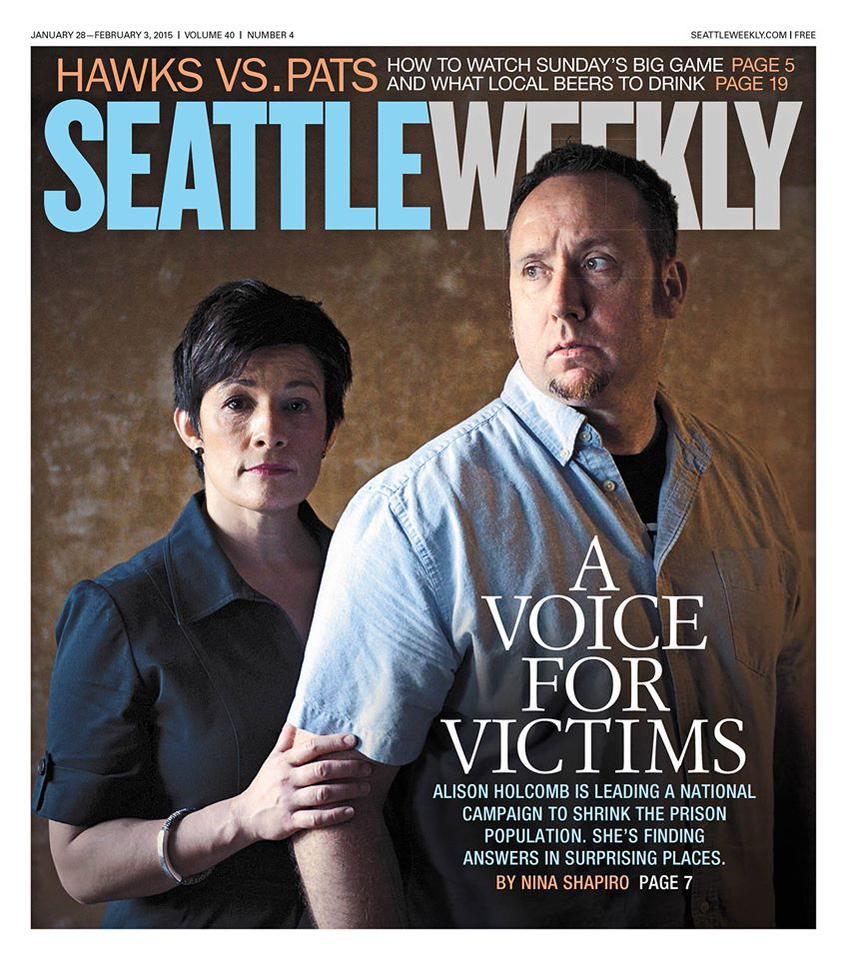One August Sunday in 1993, a Job Corps counselor who worked with troubled kids was murdered. Roughly 20 years later, the ACLU tapped his daughter-in-law, Alison Holcomb, to head a high-profile, well-funded national program aimed at combating mass incarceration.
For this week’s cover story, I sat down with Holcomb and her husband Gregg to talk about the murder, the toll it has taken on their lives and its role in shaping their beliefs about the country’s prison policies. It was an emotional conversation, particularly for Gregg. Even now, as he told me, “My emotions swing so hard, it’s difficult for me to process sometimes.”
Listening to Gregg, Holcomb was visibly moved too. It was the first time she had heard her husband recount in full the details of the murder and his reaction to it over the years.
The conversation seemed to strengthen her emerging view that victims need to be become a much more important part of the criminal justice system. What’s interesting is that she sees that reform as a way of fighting mass incarceration. As she has learned from Gregg, victims don’t necessarily want the longest sentence possible. It’s much more complicated than that.
Here are snippets from that conversation.
This is Gregg discussing his surprising response to seeing his father’s murderer get resentenced last year. Originally given life without parole, Oscar Rubi, only 17 when he committed the crime, now has a chance of getting out sometime soon.
And this is Holcomb “spitballing,” as she calls it, about other ways the justice system might support victims. She starts out asking whether a “restorative justice” approach, including possibly a meeting between Gregg and Rubi, might have helped her husband work through his pain.








